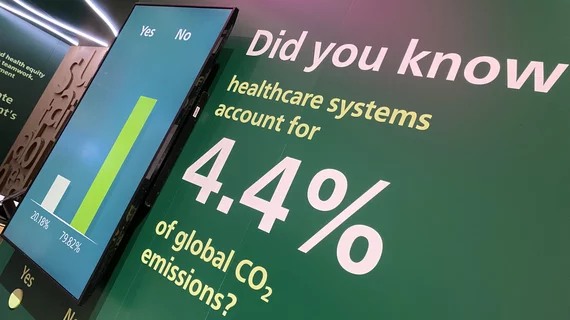How radiology departments can decarbonize, save money
How can hospitals reduce carbon emissions and save money? Ongoing research may be building a roadmap for how it’s possible in the radiology wing.
Philips and Vanderbilt University Medical Center (VUMC) released preliminary findings from their collaborative research aimed at decarbonizing VUMC's radiology department at the annual Radiological Society of North America (RSNA) 2023 conference in Chicago. The project, initiated in May 2023, highlights the potential for sustainable initiatives to be both environmentally friendly and cost-effective for healthcare organizations.
Results included in an announcement of the findings indicate that circular business models, specifically upgrades, can reduce the total cost of ownership and carbon emissions for MR and CT systems. For MR systems, the reduction is up to 23% in costs and 17% in emissions, while for CT systems, it is up to 10% and 6%, respectively.
The assessment evaluated 13 diagnostic imaging devices, including MR, CT, ultrasound, and X-ray, responsible for around 12,000 patient scans monthly. According to Philips and Vanderbilt, over a decade these devices collectively emit the Co2 equivalent of approximately 1,000 gas cars driven for a year. Significantly, the energy use of scanners contributes to more than half of the total emissions from diagnostic radiology.
“Human health is closely connected to the health of the environment, and we need to take care of both, which is why we feel a great sense of urgency to address our carbon emissions and develop a more sustainable and healthier path forward,” Diana Carver, PhD, assistant professor of radiology & radiological sciences at VUMC said in the announcement. “Our collaboration is leveraging our team’s collective knowledge and expertise to reveal key learnings that will direct our efforts to cut emissions.”
To support the carbon footprint reduction of the radiology department, Philips and VUMC said they plan to implement prioritized interventions and share their findings through a scientific publication.
More details on the research was revealed during multiple sessions conducted by both organizations at RSNA 2023.

